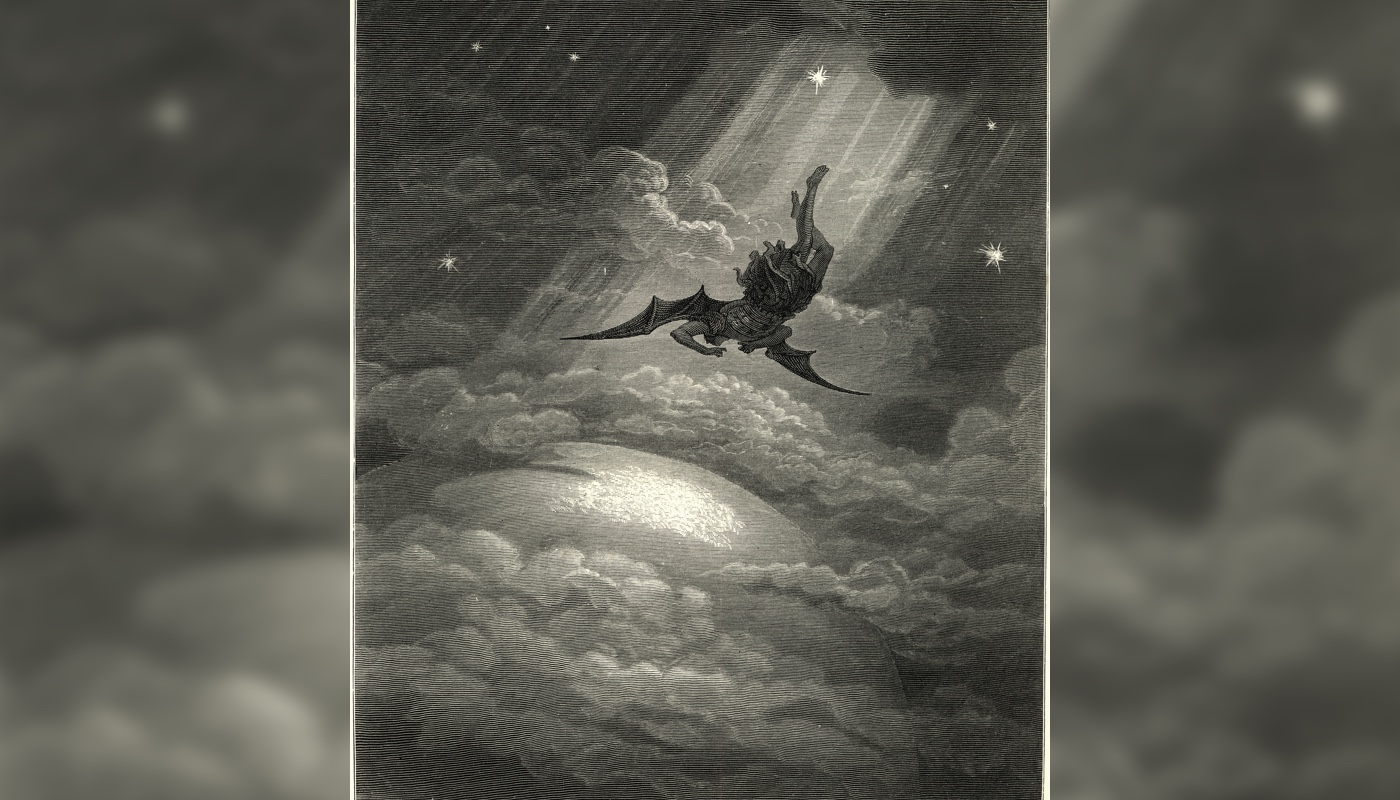Secret Message Discovered in Milton's Epic 'Paradise Lost'
A student found the message in a scene of Adam and Eve debating what to do in the face of Satan.

An undergraduate student has discovered a secret message in John Milton's epic poem "Paradise Lost."
The hidden message is an acrostic, meaning a missive spelled out by the first letters in each line of the poem. It reads "FFAALL" and "FALL" — an appropriate triple-use of the word "fall," as the poem's subject is the Biblical story of the decline of Satan, as well as the banishment of Adam and Eve from the Garden of Eden.
Milton published "Paradise Lost" in 1667 in 10 books; a follow-up edition was released in 1674 in 12 books. The newly discovered acrostic appears in book 9 of 12, in lines that describe a debate between Eve and Adam over whether they should stick together in the face of Satan's temptations or split up to face the devil's snares separately.
Related: Cracking Codices: 10 of the Most Mysterious Ancient Manuscripts
"... his foul esteem
Sticks no dishonor on our Front, but turns
Foul on himself; then wherefore shunn'd or fear'd
Get the world’s most fascinating discoveries delivered straight to your inbox.
By us? who rather double honor gain
*From his surmise prov'd false, find peace within,
*Favor from Heav'n, our witness from th'event.
*And what is Faith, Love, Virtue unassay'd
*Alone, without exterior help sustain'd?
*Let us not then suspect our happy State
*Left so imperfect by the Maker wise
*As not secure to single or combin'd.
*Frail is our happiness, if this be so,
And Eden were no Eden thus expos'd. (9.329-41)
The asterisks mark the hidden message: Reading from top to bottom, Milton spelled out "FFAALL," likely representing the double fall of humanity represented by Adam and Eve. Reading from bottom to top, the poet spelled out "FALL," possibly a reference to Satan's descent from Heaven. (According to Christian theology, Satan was an angel who rebelled against God.)
Acrostics aren't unusual in epic poetry. Milton — who was blind when he authored most of the poem via dictation — also spells out "SATAN" in Book 9, in a verse describing the serpent who approaches Eve in the Garden of Eden and tempts her to taste fruit from the tree of knowledge of good and evil. Milton pulled this technique from other epic poets such as Virgil, who used an acrostic to spell out "MARS" in a verse of "The Aeneid" in which the god of war is poised to act. His method was overlooked for many years, Milton's SATAN acrostic wasn't discovered until 1977.
The new acrostic was found by Miranda Phaal, a Tufts University senior. In August, Phaal published an article about her discovery in the journal Milton Quarterly.
"This acrostic entwines the double fall of man (FFAALL) with the fall of Satan (a single FALL, read from bottom to top), perhaps commenting on their shared inciter—Satan—or their shared root—pride," Phaal wrote. Milton uses the acrostic to foreshadow what will happen to Adam and Even, she added.
"Ultimately," she wrote, "the acrostic distills the entire poem down to its essence: three contingent falls, two paradises lost."
- In Photos: 'Demon Burials' Discovered in Poland Cemetery
- Cracking Codes: 5 Ancient Languages Yet to Be Deciphered
- 30 of the World's Most Valuable Treasures That Are Still Missing
Originally published on Live Science.

Stephanie Pappas is a contributing writer for Live Science, covering topics ranging from geoscience to archaeology to the human brain and behavior. She was previously a senior writer for Live Science but is now a freelancer based in Denver, Colorado, and regularly contributes to Scientific American and The Monitor, the monthly magazine of the American Psychological Association. Stephanie received a bachelor's degree in psychology from the University of South Carolina and a graduate certificate in science communication from the University of California, Santa Cruz.
